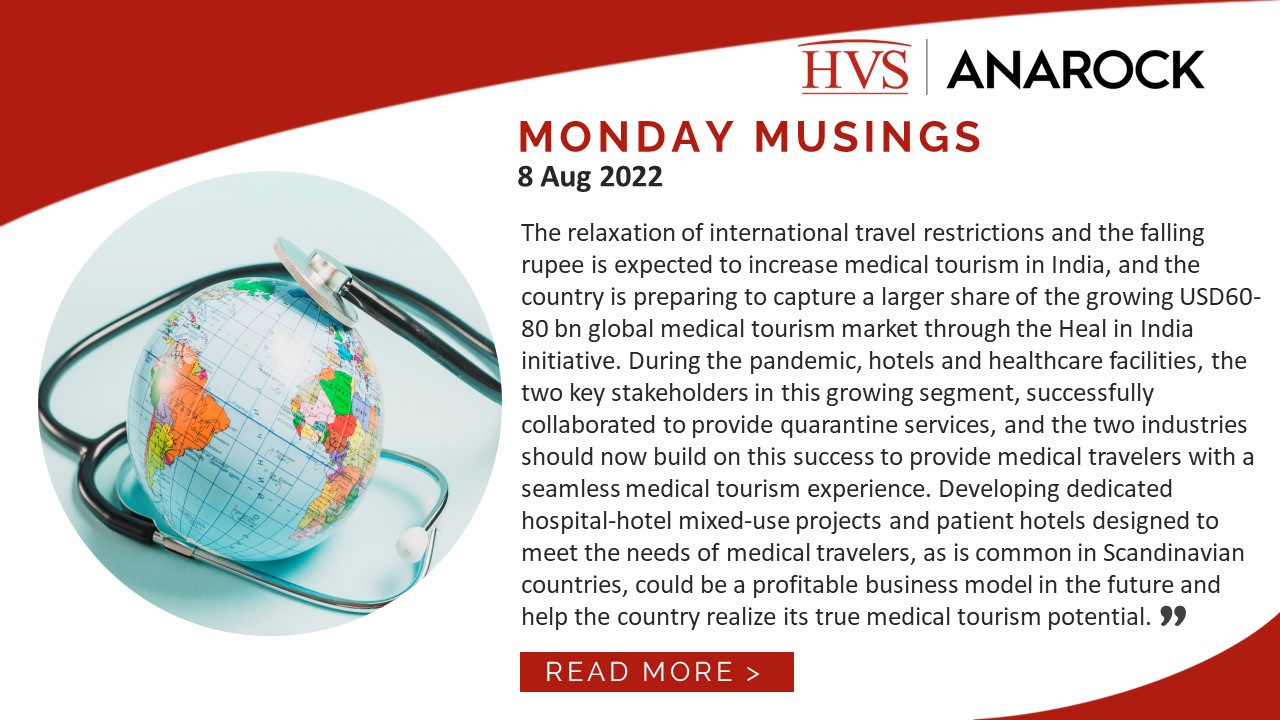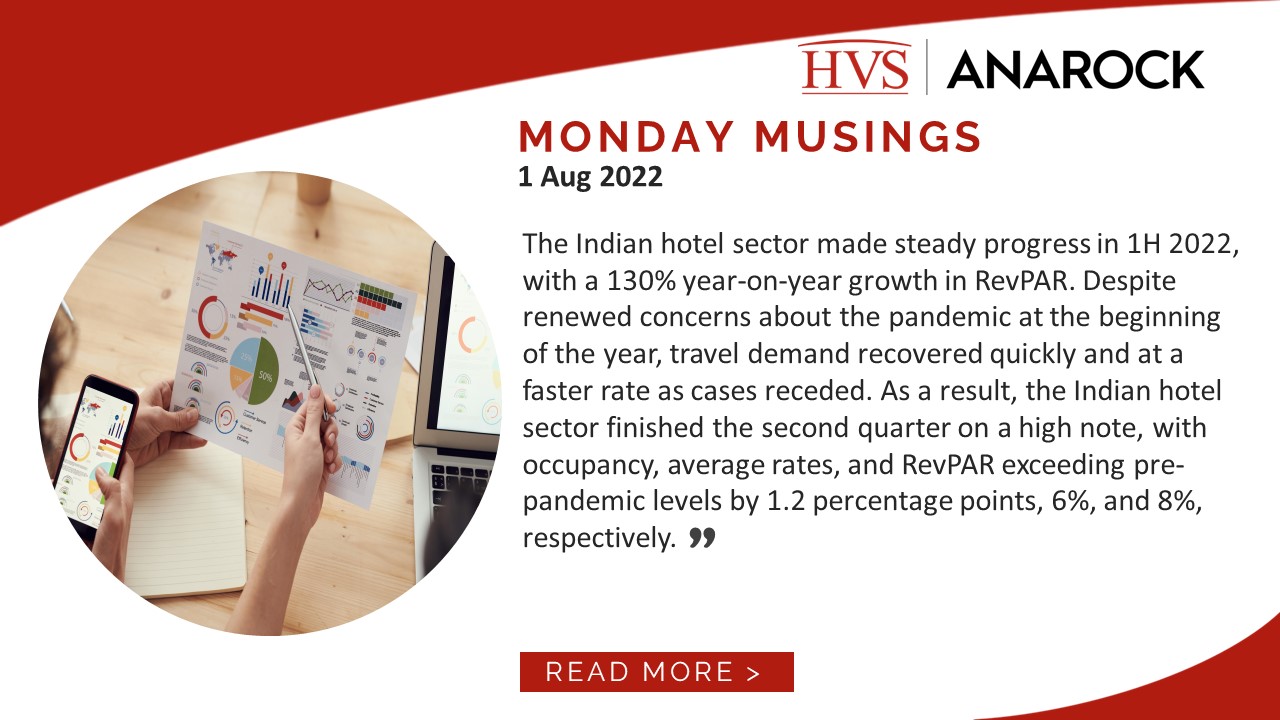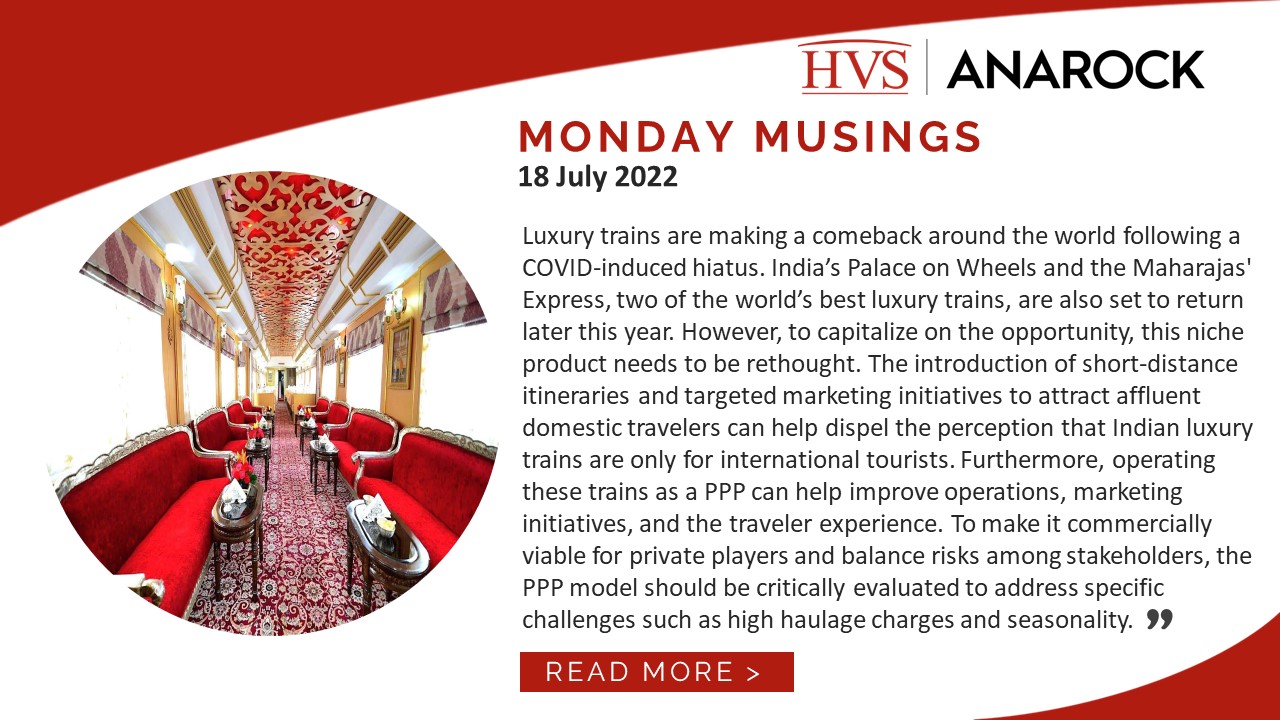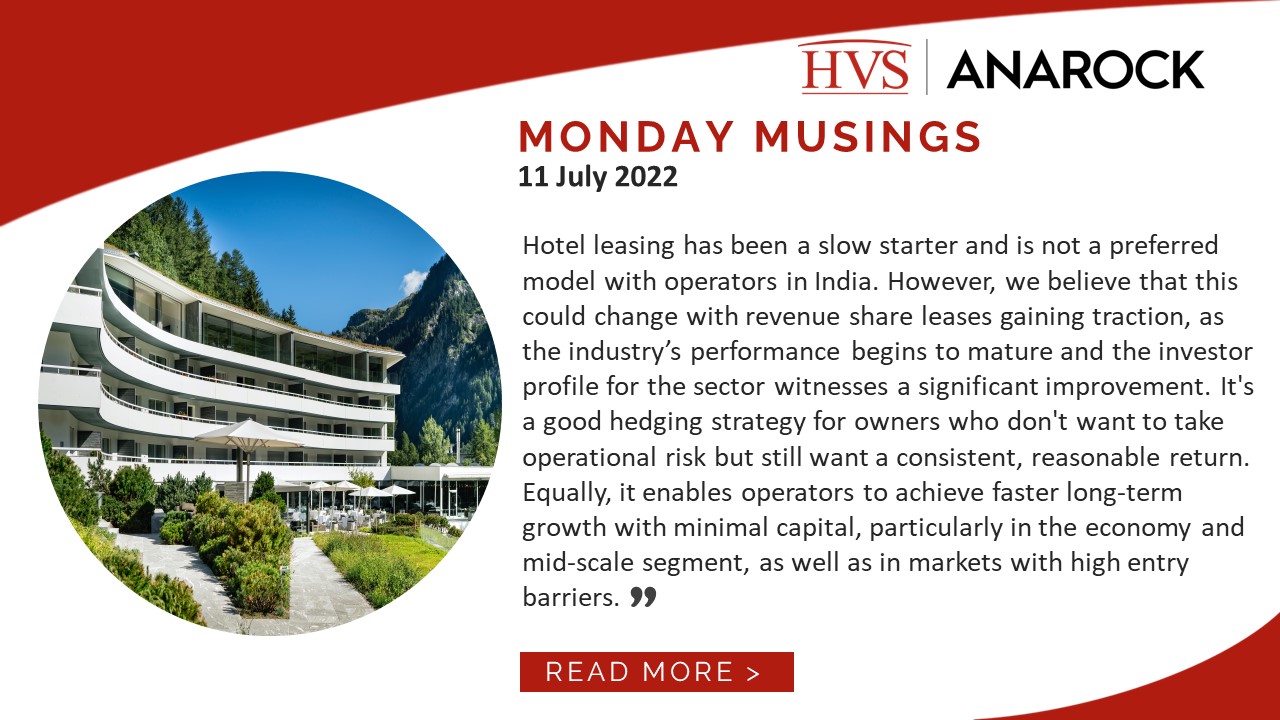Bleisure travel – business travelers extending their business trips by a few days for leisure tourism activities – is expected to grow substantially in the next few years. Can the hotel industry leverage its potential? Read on to know more.

We have written thousands of articles about all aspects of hospitality, including valuations, investing, lending, operations, asset management, and much more.
Bleisure travel – business travelers extending their business trips by a few days for leisure tourism activities – is expected to grow substantially in the next few years. Can the hotel industry leverage its potential? Read on to know more.
The Market Snapshot: Asia Pacific 2022 highlights an overview of transaction activity in the region and presents 25 markets’ current hospitality landscape; each covering demand and supply dynamics, hotel performances, and key transactions.
Hotels and healthcare facilities, two key stakeholders in the growing medical tourism segment that successfully collaborated to provide quarantine services during the pandemic, should now build on this success to realize medical tourism's true potential.
This article briefly discusses the Indian hotel sector's performance in the first half of the calendar year 2022.
The global aviation industry is experiencing severe staffing shortages, which are negatively impacting operations and traveler experience. Skill shortages are not new, but the pandemic has exacerbated them. Continue reading to learn more about how the industry is addressing these challenges.
Luxury trains are making a comeback around the world following a COVID-induced hiatus. India’s Palace on Wheels and the Maharajas' Express, two of the world’s best luxury trains, are also set to return later this year. Read on to know more.
Based on his vast experience of Palm Springs, California, Rod Clough provides curated recommendations for dining, shopping, lodging, and passing the time in this desert oasis.
Hotel leasing has been a slow starter and is not a preferred model with operators in India. However, this could change with revenue share leases gaining traction. Read on to know more.
With leisure demand driving the recovery in the hotel industry, all-inclusive resorts are in high demand around the world, especially now that travel costs are rising, and travelers are looking for vacations that provide the best value for their money. Read on to know more.
Hotel companies are redesigning their loyalty programs to meet the changing consumer demands. Read on to know more.
We have written thousands of articles about all aspects of hospitality, including valuations, investing, lending, operations, asset management, and much more.

Bleisure travel – business travelers extending their business trips by a few days for leisure tourism activities – is expected to grow substantially in the next few years. Can the hotel industry leverage its potential? Read on to know more.
The Market Snapshot: Asia Pacific 2022 highlights an overview of transaction activity in the region and presents 25 markets’ current hospitality landscape; each covering demand and supply dynamics, hotel performances, and key transactions.

Hotels and healthcare facilities, two key stakeholders in the growing medical tourism segment that successfully collaborated to provide quarantine services during the pandemic, should now build on this success to realize medical tourism's true potential.

This article briefly discusses the Indian hotel sector's performance in the first half of the calendar year 2022.

The global aviation industry is experiencing severe staffing shortages, which are negatively impacting operations and traveler experience. Skill shortages are not new, but the pandemic has exacerbated them. Continue reading to learn more about how the industry is addressing these challenges.

Luxury trains are making a comeback around the world following a COVID-induced hiatus. India’s Palace on Wheels and the Maharajas' Express, two of the world’s best luxury trains, are also set to return later this year. Read on to know more.

Based on his vast experience of Palm Springs, California, Rod Clough provides curated recommendations for dining, shopping, lodging, and passing the time in this desert oasis.

Hotel leasing has been a slow starter and is not a preferred model with operators in India. However, this could change with revenue share leases gaining traction. Read on to know more.

With leisure demand driving the recovery in the hotel industry, all-inclusive resorts are in high demand around the world, especially now that travel costs are rising, and travelers are looking for vacations that provide the best value for their money. Read on to know more.

Hotel companies are redesigning their loyalty programs to meet the changing consumer demands. Read on to know more.

Robust demand in urban centers continues to drive Canadian hotel values despite high interest rate environment.